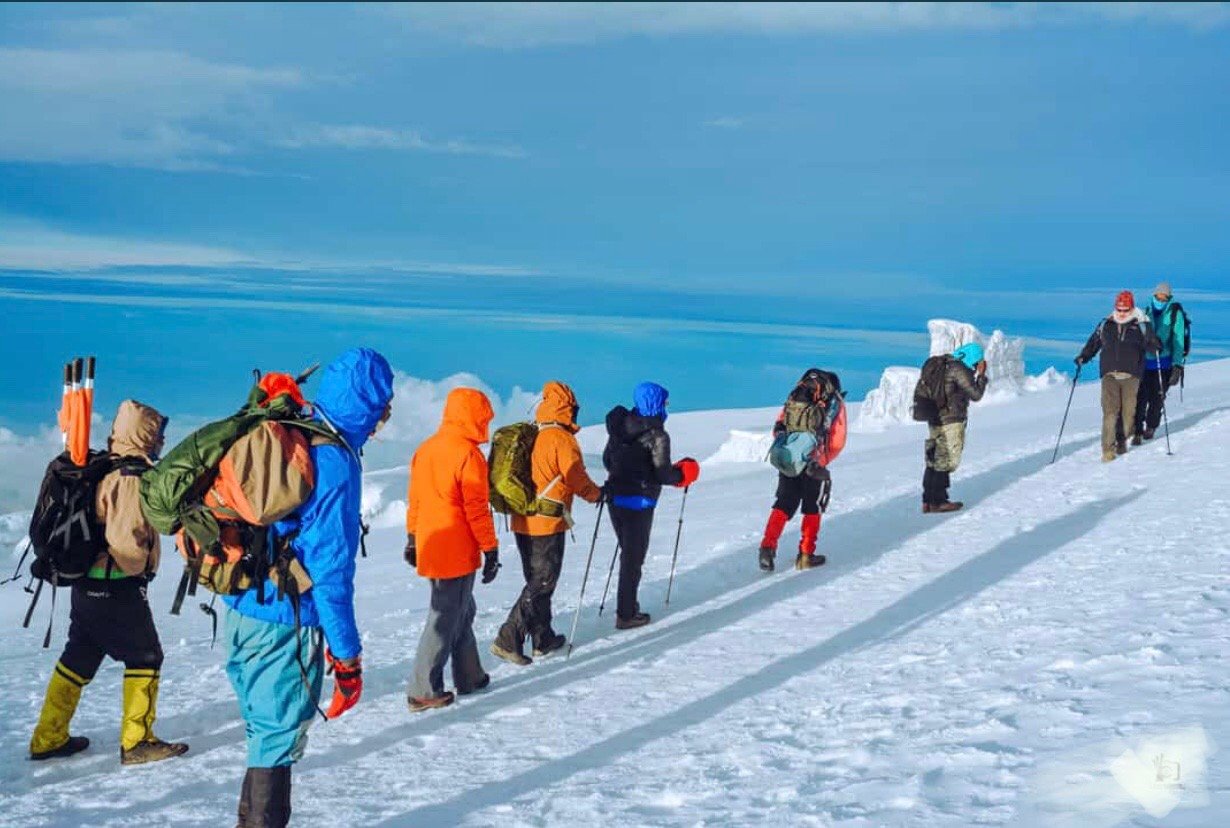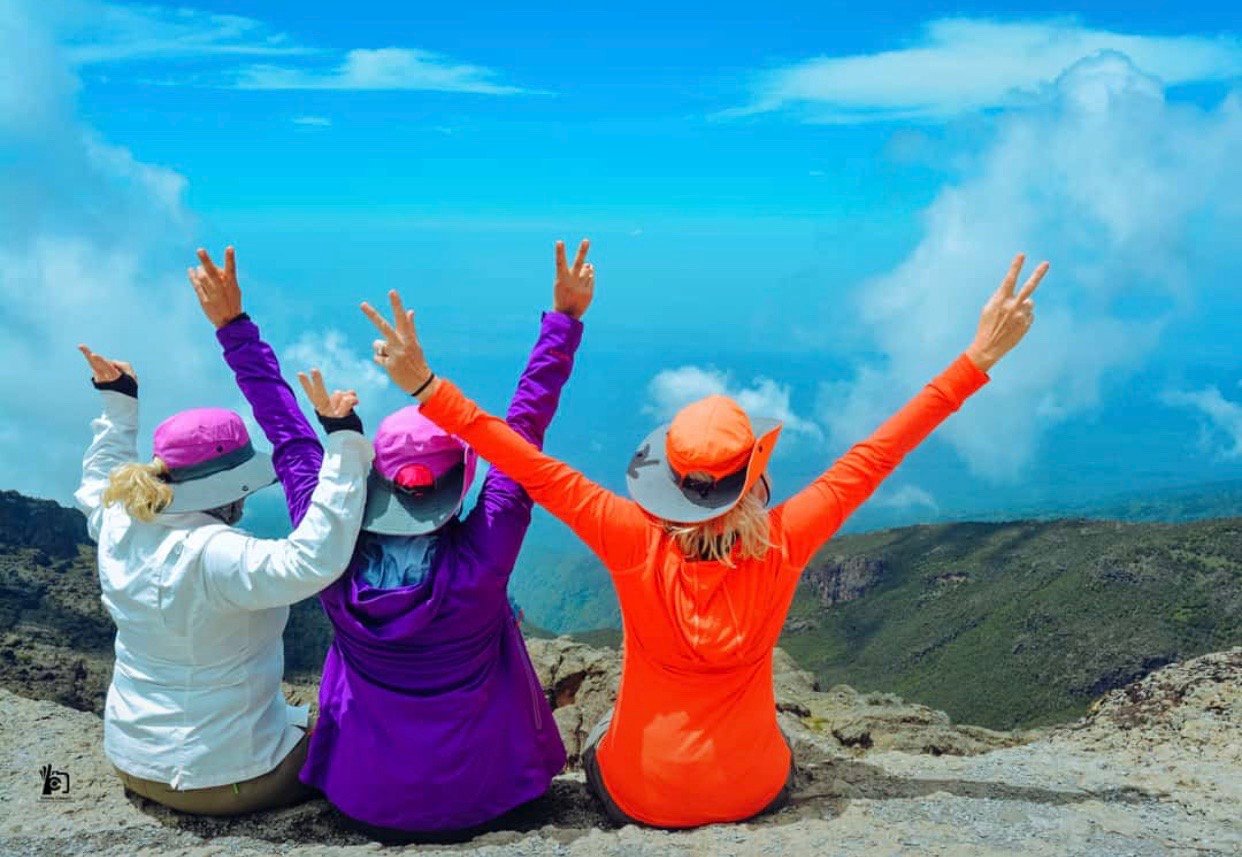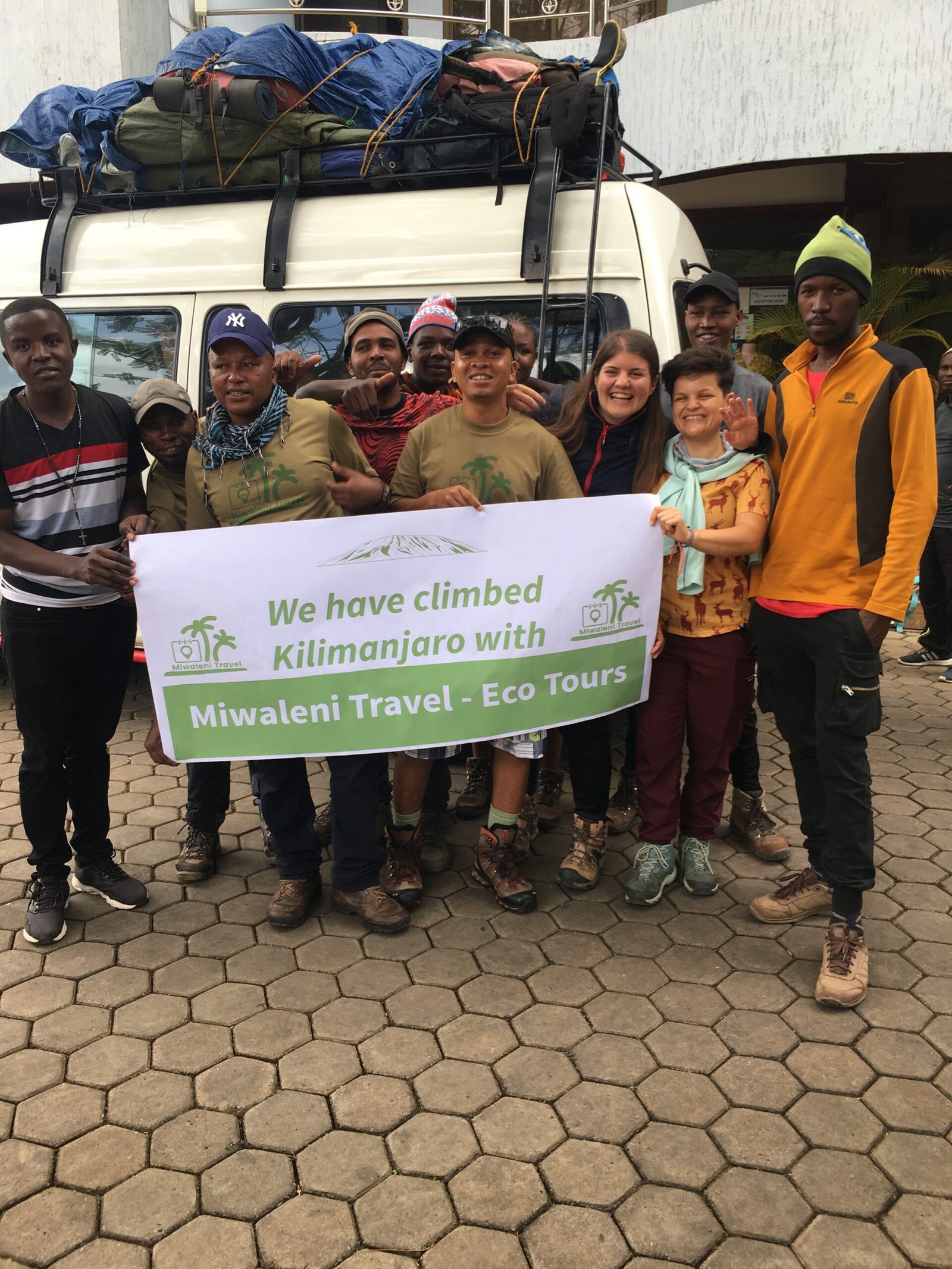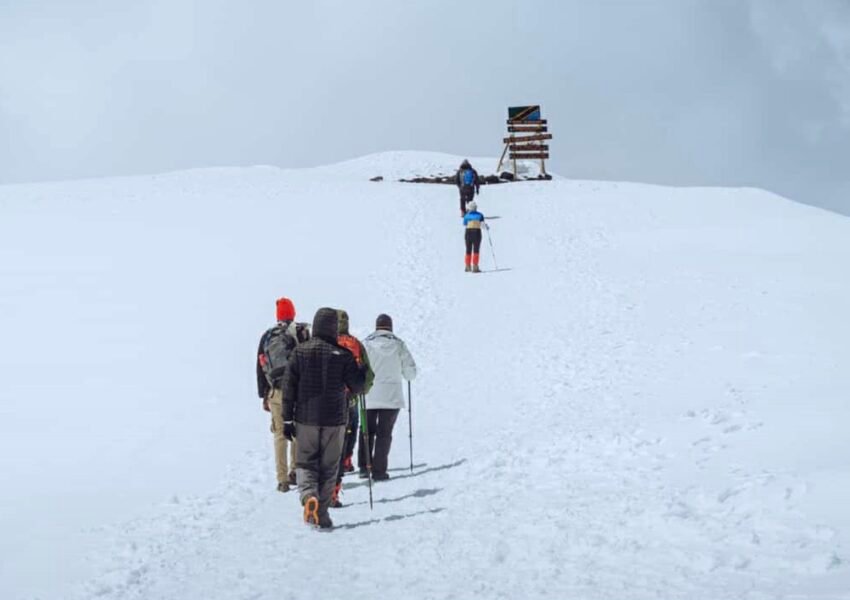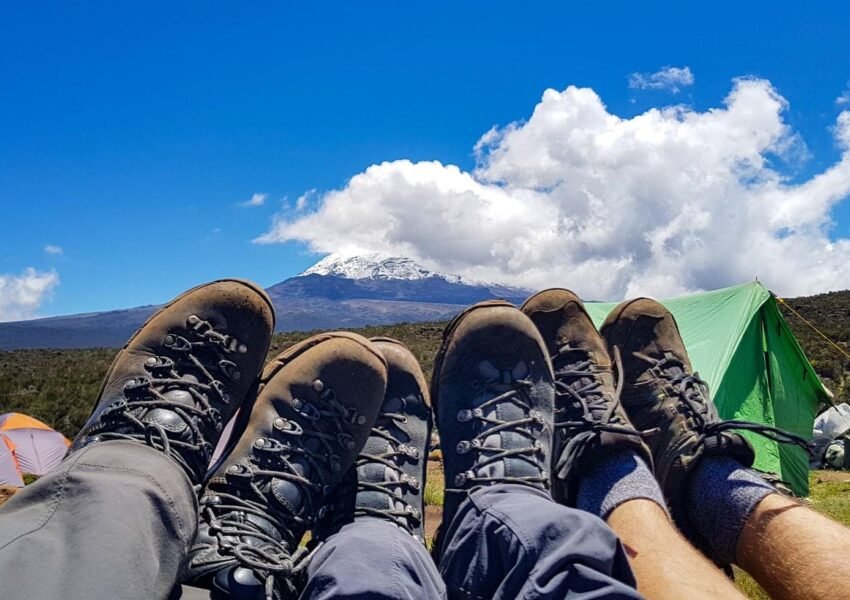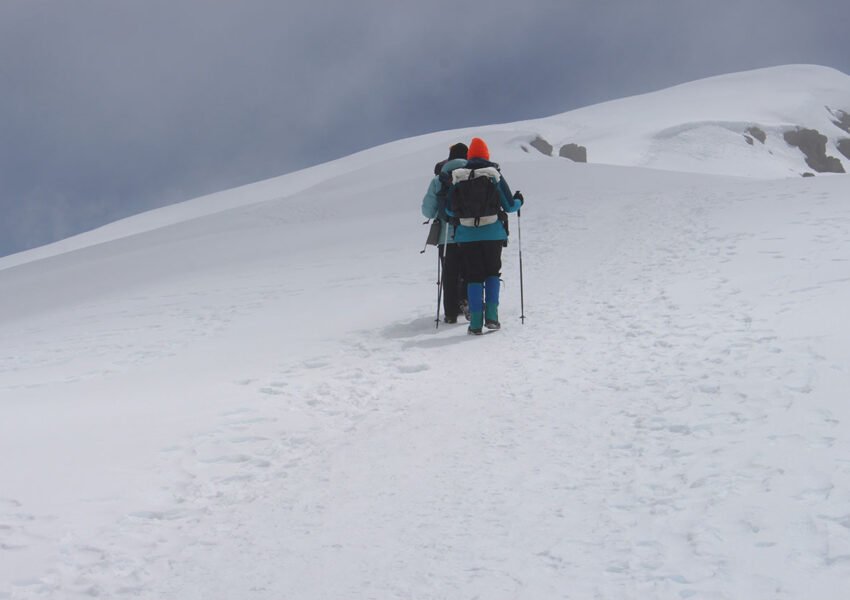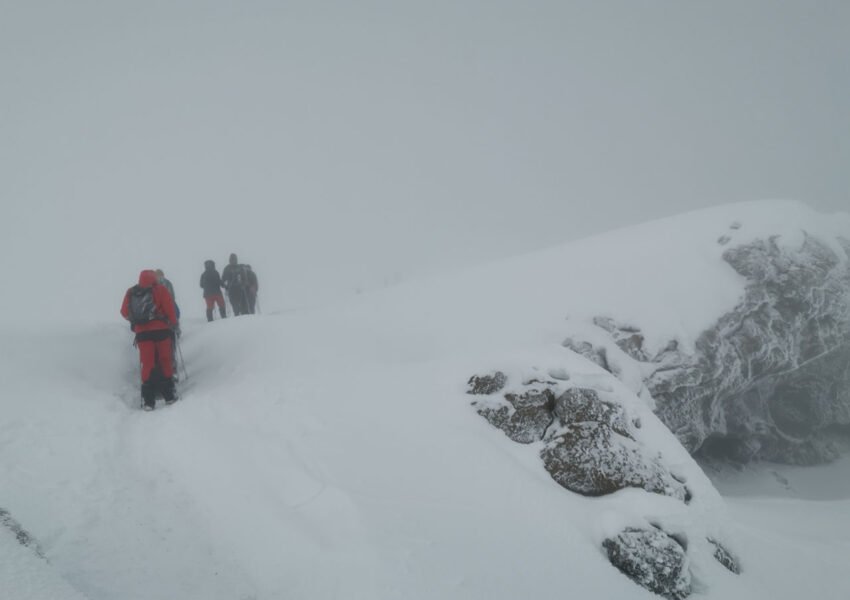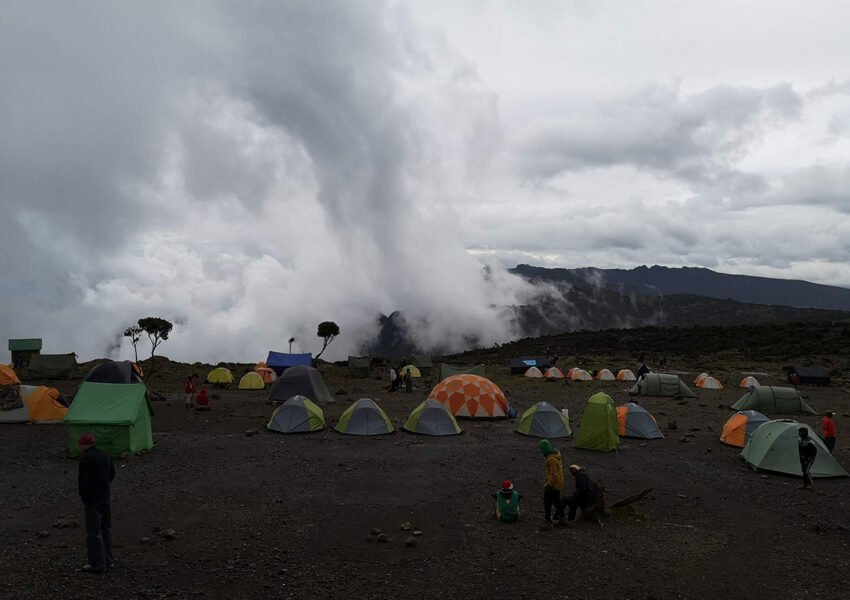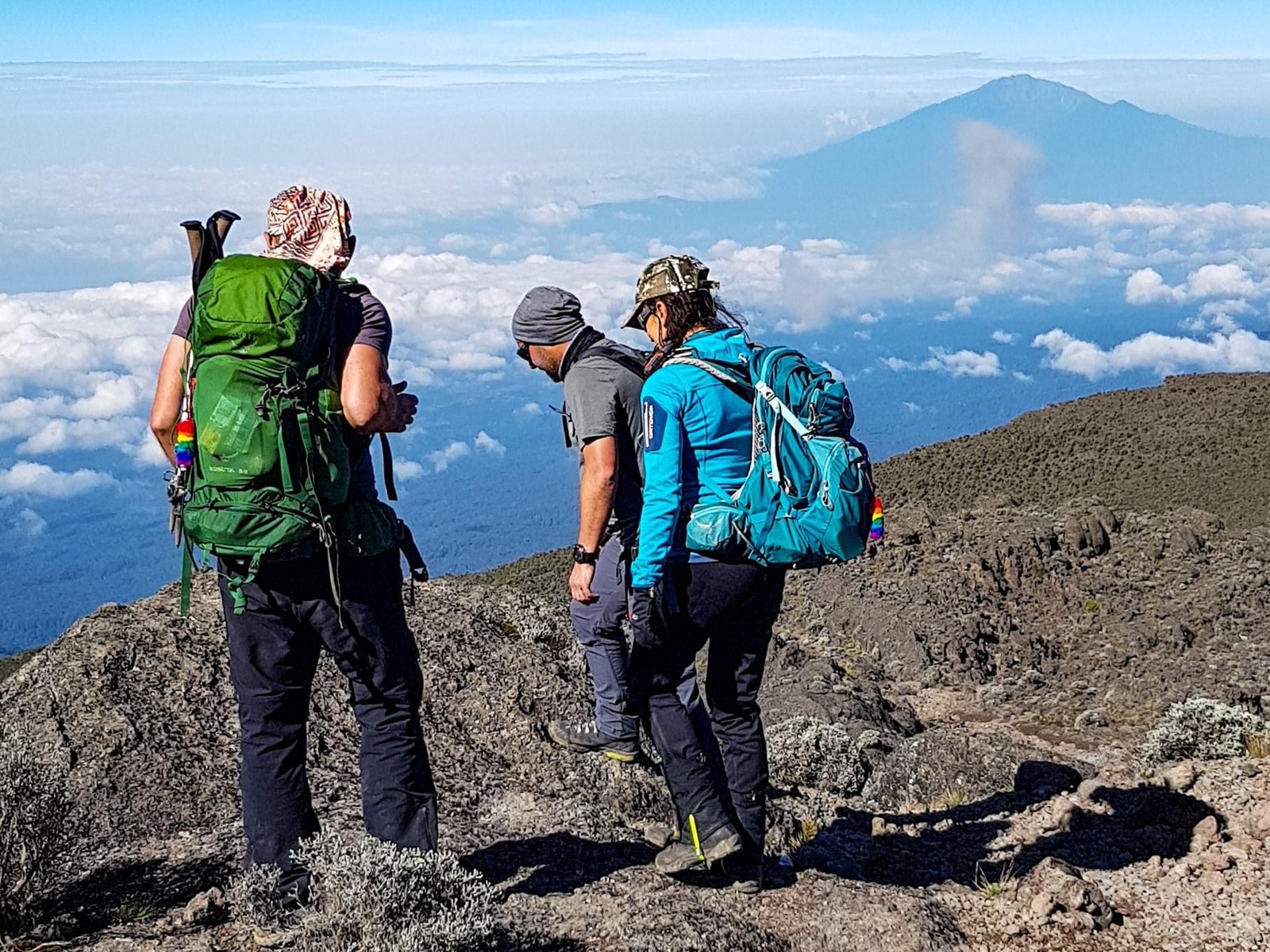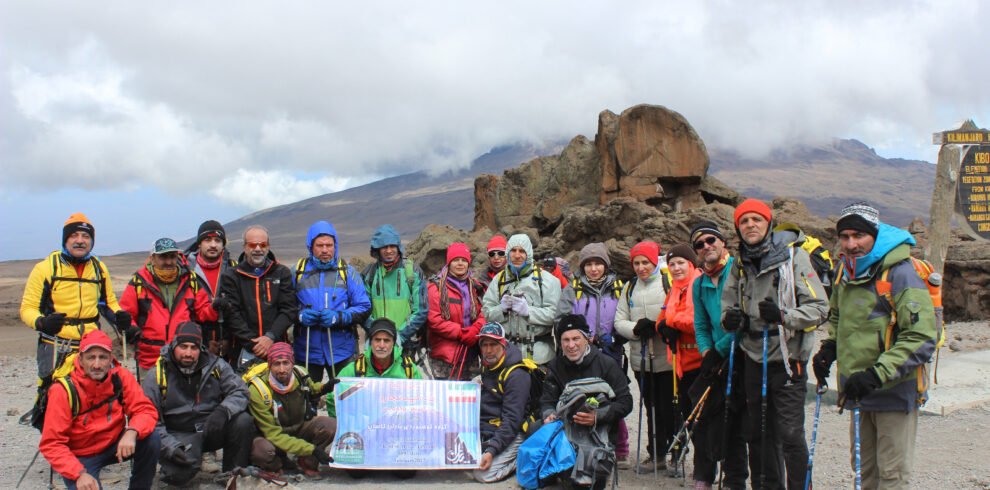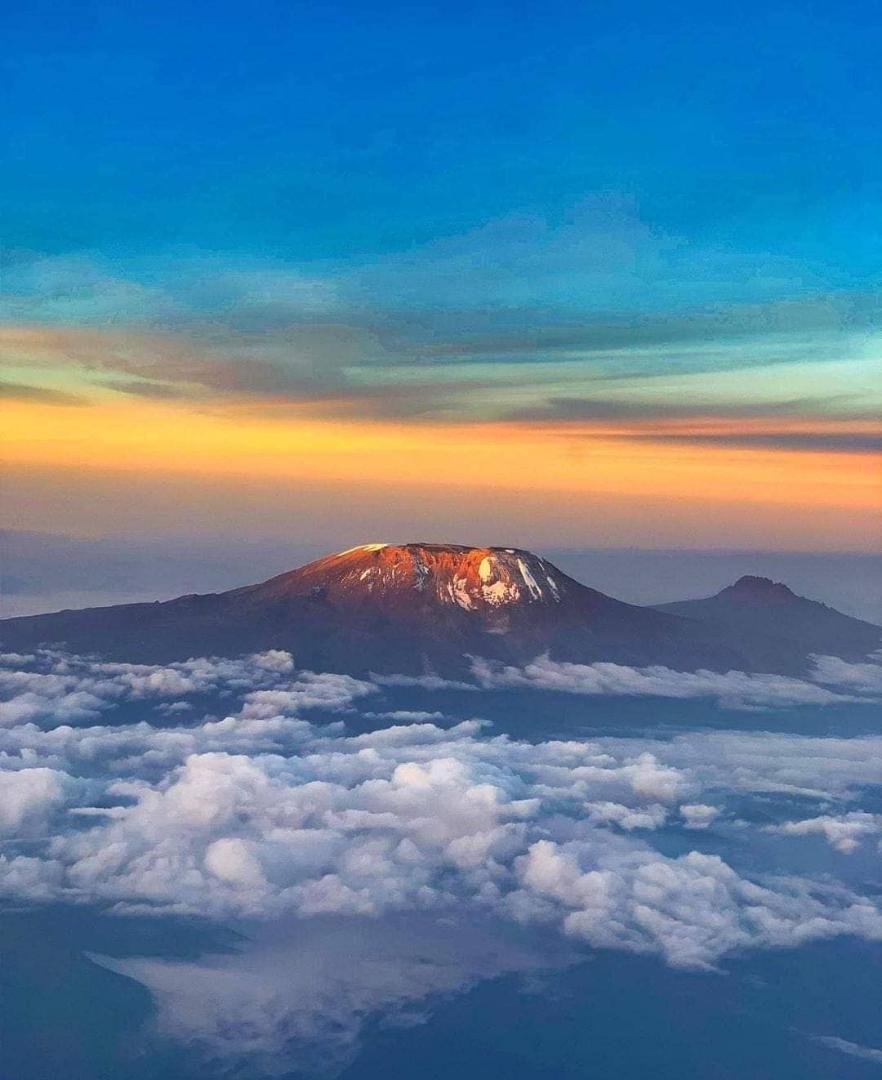Uhuru Peak is the highest point on Mount Kilimanjaro at an altitude of 5,895m (19,340 ft) above sea level.…
Kilimanjaro Lemosho Route (7 days)
- Camping (Tents)
- June to October, January to March
- Guides
- 5,895 meters (19,341 feet)
- Breakfast , Lunch & Dinner
- 10
Trip Overview
Overview
The Kilimanjaro Lemosho Route is renowned for its breathtaking scenery and offers one of the most comprehensive trekking experiences on the mountain. Starting from the western side, the route winds through lush rainforests, stunning moorlands, and alpine deserts before culminating in the dramatic glacial landscapes near the summit. This route is less crowded, providing a serene and immersive experience in nature.
A major highlight of the Lemosho Route is its excellent opportunities for acclimatization, increasing the chances of a successful summit. The gradual ascent and longer trekking days allow trekkers to adapt better to the high altitude, making it a preferred choice for climbers seeking a safer and more enjoyable adventure to the roof of Africa. This route blends natural beauty, adventure, and a well-planned trek for an unforgettable journey.
Trip Highlights
Trip Highlights
- Scenic Diversity Trek through lush rainforests, moorlands, alpine deserts, and the arctic summit zone, experiencing Kilimanjaro’s stunning landscapes.
- High Success Rate The 8-day itinerary allows for excellent acclimatization, increasing your chances of reaching the summit (Uhuru Peak at 19,341 ft / 5,895m).
- Less Crowded Trail The Lemosho Route is one of the least crowded paths, offering a more peaceful and immersive experience.
- Wildlife Encounters Spot colobus monkeys, blue monkeys, and exotic birds in the rainforest zone
- Shira Plateau Hike across the Shira Plateau, one of the highest plateaus on Earth, with breathtaking views of Kibo Peak.
- Lava Tower Acclimatization Pass the iconic Lava Tower (15,190 ft / 4,630m) for acclimatization, a key step in preparing for the summit.
- Barranco Wall Tackle the Barranco Wall, a thrilling but manageable climb with stunning views.
- Summit Night Experience the unforgettable midnight ascent under the stars, reaching Uhuru Peak at sunrise for panoramic views of Africa.
- Comfortable Camping Stay in well-equipped mountain camps with meals prepared by your support team.
Trip Itinerary
- Activities:
- Arrive at Kilimanjaro International Airport (JRO).
- Transfer to your hotel in Moshi.
- Briefing with your guide and gear check.
- Relax and prepare for the climb.
- Accommodation: Hotel in Moshi
- Meals: Dinner
- Elevation: 1,860m (6,102 ft) to 2,650m (8,694 ft)
- Hiking Time: 3-4 hours
- Distance: 6km (3.7 miles)
- Activities:
- Drive to Londorossi Gate for registration.
- Continue to the Lemosho trailhead.
- Begin the hike through lush rainforest.
- Arrive at Mti Mkubwa Camp (Big Tree Camp) for overnight stay.
- Flora and Fauna: The rainforest is home to colobus monkeys, blue monkeys, and a variety of bird species.
- Accommodation: Mti Mkubwa Camp
- Meals: Breakfast, Lunch, Dinner
- Elevation: 2,650m (8,694 ft) to 3,610m (11,844 ft)
- Hiking Time: 5-6 hours
- Distance: 8km (5 miles)
- Activities:
- Continue the ascent through the rainforest and into the heather and moorland zones.
- Arrive at Shira 1 Camp for overnight stay.
- Flora and Fauna: The moorland zone features giant lobelias, groundsels, and heathers.
- Accommodation: Shira 1 Camp
- Meals: Breakfast, Lunch, Dinner
- Elevation: 3,610m (11,844 ft) to 3,850m (12,631 ft)
- Hiking Time: 3-4 hours
- Distance: 7km (4.3 miles)
- Activities:
- Trek across the Shira Plateau, one of the highest plateaus on Earth.
- Arrive at Shira 2 Camp for overnight stay.
- Flora and Fauna: The plateau offers stunning views of Kibo Peak and the surrounding landscape.
- Accommodation: Shira 2 Camp
- Meals: Breakfast, Lunch, Dinner
- Elevation: 3,850m (12,631 ft) to 3,960m (12,992 ft)
- Hiking Time: 6-8 hours
- Distance: 10km (6.2 miles)
- Activities:
- Continue the ascent through the alpine desert zone.
- Pass the Lava Tower (4,630m / 15,190 ft) for acclimatization.
- Descend to Barranco Camp for overnight stay.
- Flora and Fauna: The alpine desert is characterized by rocky terrain and sparse vegetation.
- Accommodation: Barranco Camp
- Meals: Breakfast, Lunch, Dinner
- Elevation: 3,960m (12,992 ft) to 4,640m (15,223 ft)
- Hiking Time: 6-8 hours
- Distance: 9km (5.6 miles)
- Activities:
- Tackle the Barranco Wall, a steep but manageable climb.
- Continue through the alpine desert to Barafu Camp.
- Rest and prepare for the midnight ascent.
- Flora and Fauna: The landscape is barren, with stunning views of the southern glaciers.
- Accommodation: Barafu Camp
- Meals: Breakfast, Lunch, Dinner
Summit Day (Barafu Camp to Uhuru Peak to Mweka Camp)
- Elevation: 3,100m (10,171 ft) to 1,860m (6,102 ft)
- Hiking Time: 3-4 hours
- Distance: 10km (6.2 miles)
- Activities:
- Descend through the rainforest to Mweka Gate.
- Receive your summit certificates.
- Transfer back to your hotel in Moshi.
- Celebrate your achievement!
- Accommodation: Hotel in Moshi
- Meals: Breakfast, Lunch
- Activities:
- Transfer to Kilimanjaro International Airport for your departure.
- Meals: Breakfast
Trip Includes
- Park Fees:
- Kilimanjaro National Park entry fees.
- Camping or hut fees (depending on the route).
- Rescue fees (mandatory for all climbers).
- Accommodation:
- Tents for camping (if applicable).
- Sleeping mats.
- Meals:
- Three meals per day (breakfast, lunch, and dinner).
- Hot drinks (tea, coffee, etc.).
- Snacks during the trek.
- Guides and Porters:
- Professional, certified mountain guides.
- Porters to carry equipment and supplies.
- Salaries for the crew (guides, porters, and cooks).
- Transportation:
- Transfers to and from the trailhead (usually from Moshi or Arusha).
- Equipment:
- Group equipment (e.g., dining tent, cooking equipment, etc.).
- Safety:
- Oxygen cylinders for emergency use.
- First aid kits and basic medical supplies.
- Pre-Trek Briefing:
- A detailed briefing before the climb to discuss the itinerary, safety, and equipment.
Trip excludes
- International Flights:
- Airfare to and from Tanzania.
- Visa Fees:
- Tanzanian tourist visa (if required).
- Personal Gear:
- Clothing, hiking boots, sleeping bags, and personal items.
- Tips for Guides and Porters:
- Tipping is customary and expected but not included in the package.
- Travel Insurance:
- Medical and evacuation insurance (mandatory for most operators).
- Additional Meals and Drinks:
- Meals not included in the itinerary (e.g., in towns before or after the climb).
- Alcoholic beverages or specialty drinks.
- Optional Extras:
- Additional nights of accommodation before or after the climb.
- Optional activities (e.g., safari tours, cultural visits).
- Personal Expenses:
- Souvenirs, laundry, phone calls, etc.
- Emergency Evacuation:
- Costs for emergency evacuation or medical treatment beyond basic first aid.
Official Trek Map
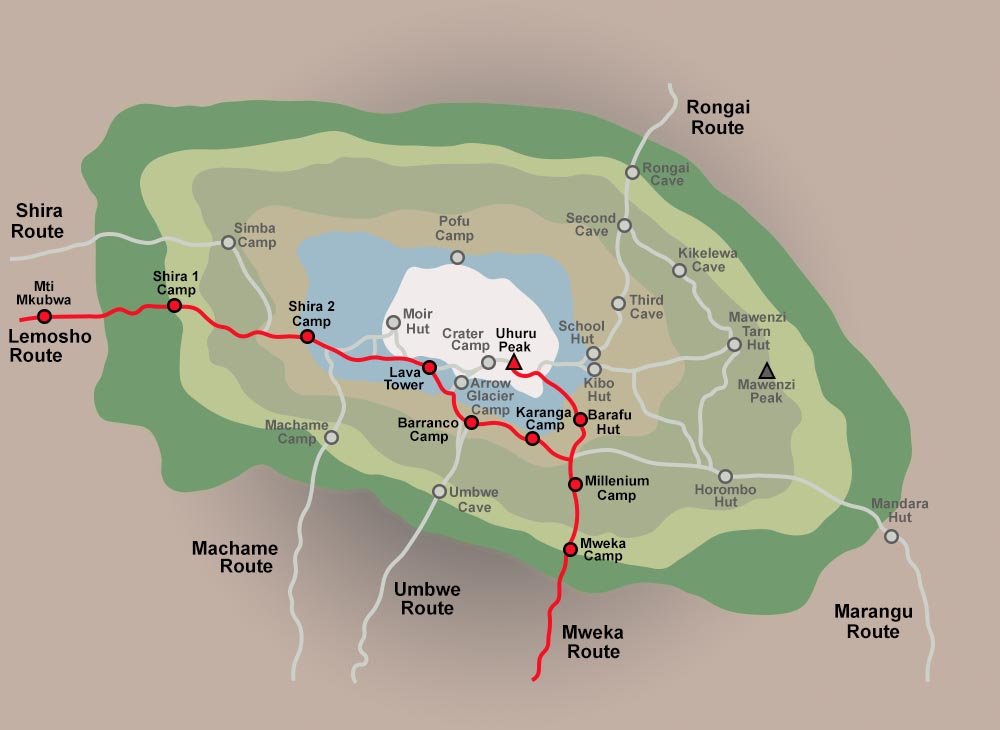
Frequently Asked Questions (FAQs)
Frequently Asked Questions (FAQs)
The Lemosho Route is one of the most scenic and less crowded paths to the summit of Mount Kilimanjaro. It is known for its diverse landscapes, high success rates, and excellent acclimatization opportunities
The trek covers approximately 70 kilometers (43.5 miles) round trip, with 6 days of ascent and 2 days of descent.
- Scenic Beauty: Offers diverse landscapes, from rainforests to alpine deserts.
- High Success Rate: The 8-day itinerary allows for better acclimatization.
- Less Crowded: Provides a more peaceful and immersive experience compared to other routes
The route is rated moderate to challenging due to its length and altitude. Proper physical fitness and mental preparation are essential.
The success rate is around 90%, thanks to the extended itinerary and proper acclimatization.
Accommodation is in mountain tents at designated campsites. The camps are equipped with basic amenities, and meals are prepared by the support team.
Yes, we provide portable toilets at the campsites.
There is no electricity on the mountain. Bring portable chargers or solar-powered devices.
Request a route
- Unbeatable Value Assurance - ( Discover extraordinary adventures )
- Effortless Reservation Process - ( No booking hassles )
- Transparent Pricing, Zero Surprises - ( No hidden costs )
- Expertise Beyond Measure - ( Team of seasoned experts )
- Your Joy, Our Priority - ( Happiness Commitment )
Need help with booking? Send Us A Message
Treking Tips
Among the important prerequisites of a successful Kilimanjaro summit attempt is being properly equipped. No shortcuts .make sure…
Each climber on Mt. Kilimanjaro is required to pay park fees, for conservation, camping, rescue, and crew fees.[…]
When choosing the most suitable time for climbing Mount Kilimanjaro, you should consider several factors: the temperature, the…
You should ensure that you have good insurance to cover these risks. It is a condition of booking…

